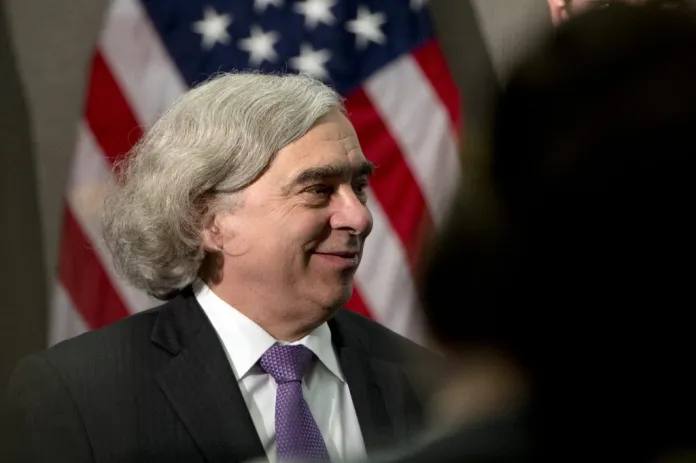Trump pollster finds support for ACA tax credits in key House districts – Washington Examiner
A recent poll conducted by Trump pollsters indicates that support for extending tax credits for healthcare premiums is popular among swing voters in key House districts ahead of the 2026 midterm elections. The survey, commissioned by Building America’s Future, found that 78% of swing voters—and a similar percentage among Trump supporters—approve of extending these Affordable care Act (ACA) tax credits. This presents an prospect for House Republicans to attract swing voters, particularly as the credits, which primarily benefit ”working families,” are set to expire soon. Historically, the GOP has opposed ACA subsidies, viewing them as part of “Obamacare,” but the poll suggests a shift in strategy could be favorable for maintaining their seat majority.
The poll covered 1,000 respondents from toss-up congressional districts, revealing that economic concerns significantly influence voter decisions. Extending healthcare premium tax credits emerged as the most promising policy for Republican candidates, shifting their hypothetical ballot position dramatically from a deficit to a solid lead. This strategy aligns with the GOP’s ongoing discussions about fiscal policies, especially as they navigate the expiration of other tax policies like the Tax cuts and Jobs Act.
as elections approach, outdated Republican positions on healthcare may need reevaluation to garner broader support among constituents focused on economic relief. The polling highlights the potential political benefits for the GOP if they adapt their approach regarding healthcare subsidies, which could impact their performance in upcoming elections.
Trump pollster finds support for extending ACA tax credits popular in swing House districts
EXCLUSIVE — A Trump pollster found that House Republicans could score well with swing voters in the 2026 midterm elections if they supported extending tax credits for affordable healthcare premiums, also known as Obamacare.
The polling offers a road map for how Republicans could sell their support for certain Affordable Care Act subsidies, which are expiring at the end of the year and have been traditionally opposed by the GOP.
The survey, conducted by pollsters Tony Fabrizio and Bob Ward and paid for by Building America’s Future and shared exclusively with the Washington Examiner, found that 78% of swing voters support extending healthcare premium tax credits for “working families” while not billing it as “Obamacare” in the poll.
Seventy-eight percent of supporters of President Donald Trump support the policy, as well — a sign that the GOP may have an opening on this matter of Obamacare, which has been a wedge issue since former President Barack Obama signed the healthcare bill into law in 2010, if they want to maintain their razor-thin majority in the House in the midterm elections.
The poll was conducted with 1,000 respondents in the 18 congressional districts rated as “toss-ups” by the Cook Political Report, with participants asked about several tax policies part of the current reconciliation debate among House and Senate Republicans.
The ACA subsidies are not part of the reconciliation conversation as of now, as most Republicans are against extending the credits permanently, given it would cost $335 billion over the next 10 years, according to the Congressional Budget Office.
In the poll, “Obamacare” was not used in the pitch to respondents. Instead, participants were asked whether they would support “extending the tax credits/cuts that allow working families to afford premiums for health insurance they buy directly, which will expire this year” — referring to the ACA subsidies.
While billed as a saving policy for “working families,” the subsidies are available to more than just working-class individuals. Those earning more than 800% of the federal poverty line (more than $120,400) can also qualify for the subsidies, in which the average enrollee saved an estimated $705 annually (or about 44%) in health insurance premium costs in 2024.
Before 2021, those credits were available on a sliding scale only to those whose annual income was between 100% and 400% of the federal poverty level.
Republicans may need to change their tune on Obamacare after years of opposition
Obamacare is often a target of Republicans, with Trump unsuccessfully attempting to roll back the provisions in his first administration. The famous “no” vote from the late Sen. John McCain (R-AZ) ultimately dealt a fatal blow to Trump and Republicans’ attempts to repeal the ACA.
After this vote, Republicans suffered more backlash in 2018 for trying to undo popular ACA provisions, such as protections for people with preexisting conditions. The 2022 midterm elections marked the first cycle in over a decade that was not centered on candidates wanting to protect or undo Obama’s signature legislative achievement.
Ahead of the 2024 elections, Democrats accused House Speaker Mike Johnson (R-LA) of wanting to repeal the ACA after the House leader said “No Obamacare” when asked whether the ACA would survive the GOP’s “blowtorch.”
Johnson later clarified his comments that the ACA is “so deeply ingrained” in current policy that it would take “massive reform.”
“House Republicans will always seek to reduce the costs and improve the quality and availability of health care for all Americans,” Johnson said in a statement to the Washington Examiner at the time. “Anyone who has been a patient or known a loved one who has struggled with health issues understands why this is so important.”
At the time, Trump’s campaign said repealing Obamacare was “not President Trump’s policy position,” and he’d seek to expand access to “new affordable healthcare and insurance options.” The White House did not respond to a request for comment on the new poll by press time.
Path to an expanded House majority could run through ACA and Tax Cuts and Jobs Act
With a razor-thin majority, House Republicans have been laser-focused on finding the best path forward for reconciliation. Hovering over their heads is the Tax Cuts and Jobs Act of 2017, which Trump signed and passed into law during his first administration.
Like the ACA premium credits, the TCJA expires at the end of this year. Since gaining the GOP trifecta with Trump’s inauguration, Republicans have argued over whether they should focus on border and defense first and then tax cuts in a two-bill approach or take the time to negotiate “one big beautiful bill” with all of the agenda items — the latter of which Trump endorsed on Wednesday.
One of the holdouts involving the TCJA is that of state and local taxes, or SALT, cap, as well as hard-line Republicans pushing for large spending cuts that would serve as pay-fors for the extensive tax cuts Ways and Means Committee Chairman Jason Smith (R-MO) is eyeing.
In the poll, 70% of swing voters support extending the child tax credit, and 54% support raising the SALT cap. Overall, 48% of swing voters support extending the TCJA, compared to 82% of Trump supporters.
Four policies tested in the poll were used in the context of support for a House Republican candidate for office: extending the healthcare premium tax credit, expanding the per-child tax credit, reducing the corporate income tax rate, and extending the TCJA. Of the four, extending the healthcare premium tax credits in the ACA moved the ballot margin the most: from a losing margin of -5 points to a winning margin of 20 points.
The pollsters argued that Republicans will need to play catch-up and deliver on the tax credits in the toss-up districts if they wish to maintain and expand the majority in 2026. Included in the 18 surveyed districts are some of the 13 House Democratic seats won by Trump in 2024, which Republicans pegged as targets to flip.
“Our polling found that a main driver of the electorate in competitive districts remains their financial situation,” Fabrizio, a senior adviser at Building America’s Future, said in a statement to the Washington Examiner. “While many of the tax policies Republicans are considering earn high marks in these districts for those looking for economic relief, battleground Republicans can score a huge political win with both Trump and swing voters by extending the tax credits that allow families to afford premiums on their health insurance.”
The Washington Examiner reached out to Johnson and the Democratic Congressional Campaign Committee for comment.
" Conservative News Daily does not always share or support the views and opinions expressed here; they are just those of the writer."




